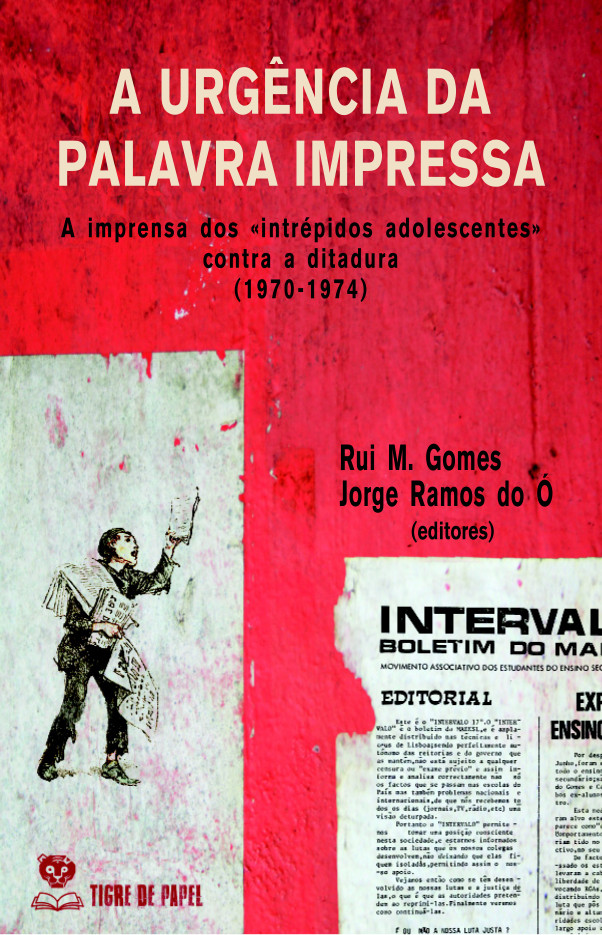Book presentation
«A Urgência da Palavra Impressa. A imprensa dos "intrépidos adolescentes" contra a ditadura (1970-1974)» | Rui M. Gomes and Jorge Ramos do Ó (eds)
June 4, 2023, 17h00
Feira do Livro de Lisboa - Praça Azul
The book will be presented by José Neves (Director of the Institute of Contemporary History-UNL) and by the editors Rui M. Gomes (Retired Full Professor of the UC and CES Researcher) and Jorge Ramos do Ó (Professor of the Institute of Education-UL)
Synopsis
In high schools, the numbers of enrolled students do not deceive as to the elitist character of their attendance. In 1970, 14 870 pupils were enrolled and, although a sharp increase of 50% was confirmed in 1973, only 22 994 pupils were attending this branch of secondary education. This was the largest increase in the number of secondary school students during the Estado Novo period, a fact not unconnected with the economic and social reconstruction of the dictatorship and the growth in social and educational aspirations of wider sectors of the population.The new social aspirations have visible and invisible repercussions, which either quietly and slowly multiply or present themselves urgently and loudly. The adults in these social groups took advantage of the situation by becoming noticed for their new consumer behaviours and for the anxious pressure on the schooling of their offspring, but some of their adolescent children opted for a faster path and concluded very early on that the new life could be accelerated if they took the floor and broke away from the institutional ties of the dictatorship.
Creating a new public sphere in which they could express their autonomy became a programme. Part of the construction of that new public sphere was done through instruments that today are part of those acquired by the generation born after the 25th of April: the freedom to speak, to write, to produce and disseminate information from individual free will and group organisation and cooperation. For those who today participate daily in social networks and know the free press, it is difficult to understand this history made of some boldness, because it involved the persecution of a police state. However, in the early 1970s, these means did not exist; worse, the free press did not exist and those who wanted to build it had to be willing to challenge the dictatorship's instruments of control, surveillance and repression. It was in this context that the adventure of the secondary school student press was built in the terminal period of the dictatorship. It is of that history that the pages of this book are made.
About the Authors
Rui M. Gomes holds a PhD in Sociology of Education from the University of Lisbon, is a retired full professor from the University of Coimbra and a researcher at the Centre for Social Studies. He was a director of MAEESL between 1971 and 1974.
Jorge Ramos do Ó holds a PhD in History of Education from the University of Lisbon and is a full professor at the Institute of Education of the University of Lisbon.


